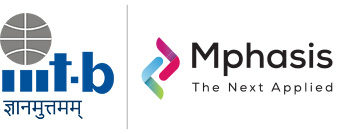Bharatiya Bhasha NLP Research Group
Overview:
Observing and modeling the dynamics of climate components, such as the atmosphere and ocean, presents significant challenges for scientific analysis and understanding of their evolution. To reduce uncertainties in predicting extreme events and improve the quantification of climate change, the climate science community is increasingly turning to deep learning methods. However, geophysical fields, characterized by non-i.i.d. (independent and identically distributed) data (sometime time dependent, spatially dependent, etc.), pose unique challenges.
Our project aims to develop new approaches to domain generalization tailored to the specific nature of geophysical fields. We focus on ensuring not only overall performance consistency across datasets but also learning the intrinsic structure of these fields. Our research targets three major geoscience problems—ocean surface temperature, atmospheric precipitation, and lastly their connections to epidemic spreads in the observed habitable regions — which are crucial for modeling and quantifying the effects of climate change and their social benefits.
Three primary research directions guide our efforts:
DL1: Conditioning Deep Models: Learn to condition models to environments with similar underlying physics as the training data but different conditions (e.g., initial conditions or physical parameters).
DL2: Domain Mapping: Develop approaches to map one domain onto another, considering the specificity of geophysical fields in terms of scale law.
DL3: Resolution-Free Approaches: Propose resolution-free methods for learning image representations to address the scale law challenges inherent in geophysical fields.
Our practical objective is to achieve coherent modeling of geophysical fields, allowing us to learn their intrinsic structure from numerical modeling, observational products, or spatial observations. The impacts of our work extend to scientific (climate dynamics), societal (modeling of unseen extreme events), and industrial (weather or energy prediction) domains.
This project aims to improve decision making and further the use of physics-informed deep learning to advance social and environmental objectives. Other than building interpretable and explainable ML models for social good, we aim to build software in R / Python that will be made readily available for its usage for societal benefits.
TEAM MEMBERS:
Prof. Srinath Srinivasa
Prof. G Srinivasaraghavan
Prof. Ramasubramanian V
Prof. Raghuram Bharadwaj
